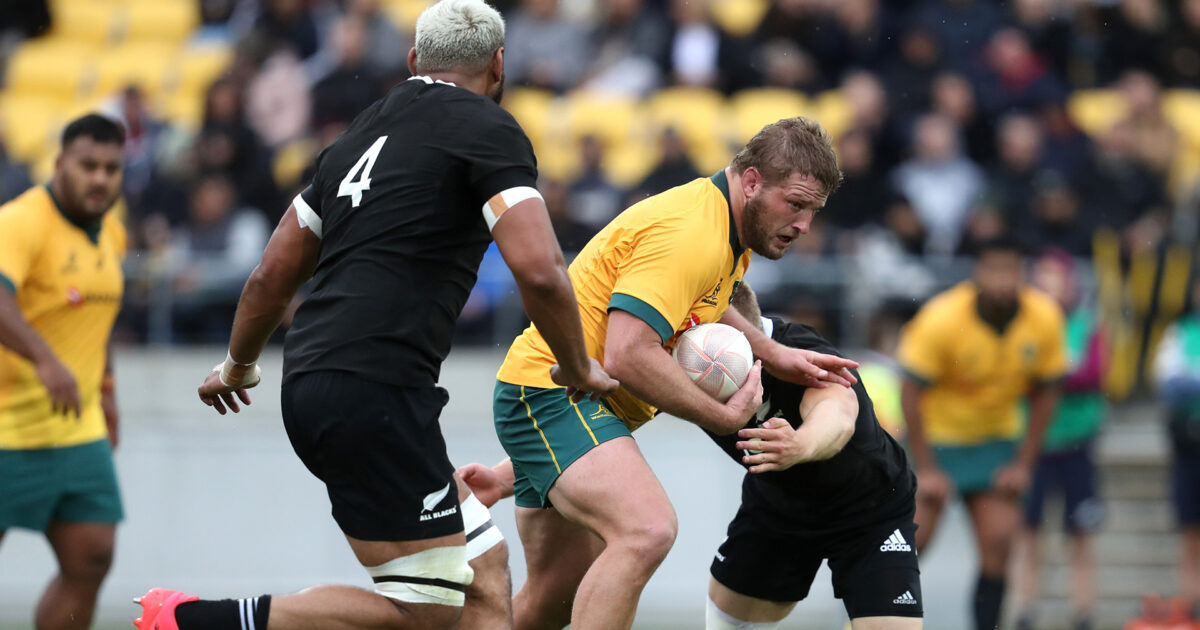A lot to work on but Wallabies are still confident says Slipper

They’re humbled, hurt and happy to be going home but the Wallabies are also high on confidence as they enter the second half of the Bledisloe Cup series.
Beaten 27-7 by New Zealand in the second Test of the series at Eden Park in Auckland yesterday, the Wallabies have to win Tests in Sydney and Brisbane to claim the Bledisloe Cup for the first time since 2003.
Prop James Slipper, one of the team’s most experienced players in the squad said the post-match mood was surprisingly upbeat.
“The good thing is that we get to play them in two weeks’ time and I guarantee it will be a better outcome,” Slipper said.
“There’s a lot of confidence in the group and we’re well aware this Bledisloe is still alive.
“Yes, we let ourselves down yesterday but we’ve got two to go back at home and we’re pretty excited to get back and get stuck in because one thing this group wants to do is win the Bledisloe.
“Yes, we’ve got a lot of work to do but we don’t think we’re too far away as well.”
The team will split up for a few days at home before coming together later this week and Slipper said the break from each other would be important after a month of being in a tight bubble, which has been both a blessing and a curse.
“We’ve done a lot of work off the field, building connections between the boys – it’s been one of those years when it’s been easy to do because we’ve been in each other’s pockets due to COVID.
“We had two weeks’ quarantine together in Christchurch – so it’s a tight group and we’re working really hard and we know we’re going to get results.
“As an older boy in the group I’m really proud of how the boys are handling it.
“But we’ve got a chance now to freshen up mentally – we’ve been in each other’s pockets for a month now and it’s important you take that mental break and come back ready to go.”
https://www.instagram.com/p/CGfKUrogX9k/
Slipper said while the result was disappointing, the fixes were obvious.
“We gave them too much ball and missed too many tackles,” he said.
“It’s disappointing because we didn’t play the game we’d been training to play. We wanted to attack in defence and as everyone saw we missed over 40 tackles and let their outside backs clean up.
“We gave them easy ball to run with and with such powerful players like Caleb Clarke, they’re hard to pull down one on one. Ideally, we don’t want him to be running over us.
“To stop that it comes down to individuals making tackles – a lot of tackles we hit well and then just fell off. You have to make those stick otherwise the offload comes and the wave of momentum comes.”
Centre Matt To’omua remains an injury concern after straining a groin muscle and will have scans on the injury when he gets home.
The final two games of the Bledisloe Cup series are in Sydney on October 31 and Brisbane on November 7.
– Michael Donaldson









































































